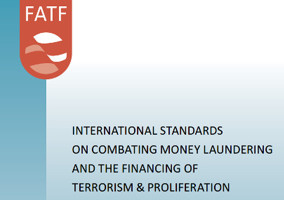The government has said that it is convening a working group to look at the implications of counter terrorism legislation on the funding and delivery of humanitarian assistance.
The working group will include charities and other non-governmental organisations (NGOs), as well as members of the banking sector and other key government departments. The Treasury told Civil Society News that the key aim of the working group is to build a shared understanding the specific contexts in which NGOs operate, and concerns regarding funding flows.
In recent years, charities including Islamic Relief have had their banking services withdrawn, meaning that they were not able to deliver much-needed services.
In a response to a written question on Muslim banking services, Lord O’Neill of Gatley said that officials have discussed the issue of access to banking with individual Muslim organisations as well as representative groups such as the Muslim Charities Forum and Bond.
He said that the government remains concerned about the “growth of de-risking and the implications it has for NGOs, economic growth, financial inclusion and financial stability, and recognise that this trend remains a global problem”, and have taken concrete steps to address this.
He said that “in order to continue dialogue with the NGO community on these matters, a Government-NGO Working Group will shortly be convened to explore concerns and identify solutions on the impact of regulation and banking practices on NGO operations in fragile states. The group will examine the specific challenges faced in getting aid into hard-to-reach communities”.
The Treasury said that the group aims to create an improved understanding of the realities of operating within conflict zones or areas administered by organisations associated with terrorism and the due diligence activity undertaken by NGOs and banks to prevent any diversion of resources to designated entities.
It will also provide the NGO sector with a greater understanding of how the government interprets and seeks to implement relevant legislation.
Last month the Financial Action Task Force on Money Laundering (FATF), the international body that combats terrorist financial abuse around the world, revised a policy that assumed that international charities were at high risk of being used to finance terrorism to clarify that that is not the case.
The Charity Finance Group, which has been involved in discussions over bank de-risking, said that this is an opportunity to make it easier for NGOs.
Andrew O’Brien, head of policy and engagement at the Charity Finance Group, said: “We are pleased that the government has recognised the importance of working with NGOs to improve understanding of counter-terrorism legislation and reduce risks of NGOs and banks falling foul of the rules.
“We have an opportunity on the back of the Financial Action Task Force’s change in guidance that NGOs are no longer ‘particularly vulnerable’ to terrorism, to make it easier for NGOs to transfer their money and carry out their activities.
“We are working with the government to get these working groups moving forward as quickly as possible. We are hopeful that we can give greater clarity to banks and NGOs so that we can continue to deliver the humanitarian and peace-building work upon which tens of millions depend.”
Related articles












